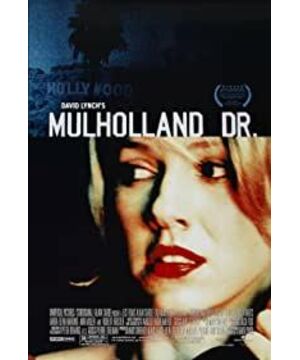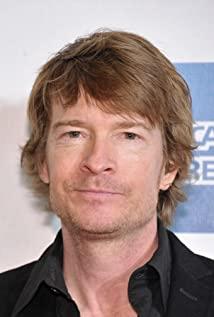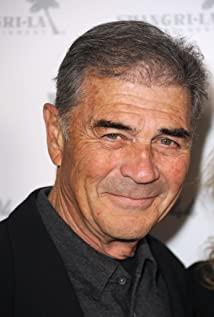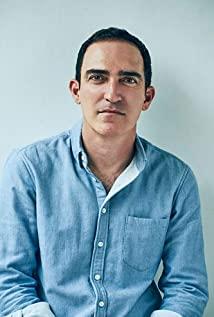The narrative techniques used in the film are actually not new. If you are familiar with the lazy style of American directors who are not enterprising, like the uncle next door, you will have habitual vigilance at the beginning of the film. Even voted for an appropriate contempt. (The following serious spoilers, be careful!) The song and dance in the opening paragraph is said to have a certain cultural significance. This is not understandable by the general audience, so it can be completely ignored. (I vaguely remember that other directors used this method of processing without depth of field, and it was also used to imply "I'm playing Freud's theory".) You can't soak the packaging bag together when you eat instant noodles, right? If it must be said that the packaging bag carries the important information of the noodles itself, then I think it is enough to see one thing: the last floating silhouette imitates the famous photo of Marilyn Monroe. It can be speculated that this story happened mostly in entertainment. boundary. Therefore, the Dance Forest Conference still reminds me of Shakespeare's most popular saying: The world is a stage, and all the men and women who appear are just actors.
Closer to home. In the movie, MM wept and fell asleep, and the camera plunged into the darkness behind the light red cushion. You should know that this is not the beginning of the story. The beginning of the movie that a mature adult can understand takes place at 115', and the scene is also a fierce man plunged into the darkness of the blue jewelry box. In this way, if you write it in accordance with the method of technical flow, I am afraid that you will be caught in the director’s tricks. Simply tell the whole story in the simplest way, and even try not to talk about Freud. After all, he is also an excellent son of the people. !
Diane, a small-town Canadian girl, bid farewell to her uncle and aunt who raised her and came to Hollywood to dream. However, perhaps it was only because her slightly weakened figure was not good for people, or because she secretly resisted the unspoken rules of the entertainment industry. Upper position (this is a hint given by 134'), so it can only be used as a background function that is almost the same as the props. In the set of 124', if it is not the request of the heroine Camilla, she will also wear black frame glasses The director clear the scene ordered to leave and have a cup of work coffee. Camilla is Diane's gay partner. They met in an actor selection called What's the Northern Story. Later, Camilla became the protagonist and Diane was unsuccessful (85'). Camilla finally decided to end this same-sex relationship and embark on the road of double harvest in marriage. Camilla’s engagement with the director’s black-frame glasses was undoubtedly the biggest blow to Diane. Originally, she was still indulged in the romantic plot of Camilla coming to the 6980 intersection of Moulin Road and holding her hand up the hillside. The engagement party was full of unhappiness: the mother in black-rimmed glasses was inquiring about the details like a big figure, the middle-aged strange girl frequently gave undisguised lustful eyes, and Camilla kissed the female partner who was whispering in her ear very ambiguously. One absence reminds Diane that the laws that can run rampant in this world can only be money and power. She also felt a deep sense of inferiority, and even lied that her aunt was in Hollywood, leaving her with a lot of inheritance after her death. This actually made her very sad. If a person retreats steadily in the struggle for power and lust, he may only have to wait for a bleak evening scene, but if the rout is too sudden and violent, it will stimulate the prosecution of all natural violence. Diane decided to hire a killer to kill her former lover. They made a deal in a restaurant called Lynch. The waitress who came to add coffee was named Retty. When she handed Camilla's picture to the killer, a man with brush-like eyebrows glanced at her casually outside the window. After that, Diane received the secret sign (key) from the killer as expected, and the handbag of her former lover became a beggar's plaything on the street. When she found out that she was actually unable to bear the result of the tragedy she had created, all her dreams fell on a summer afternoon. The nightmare then collapsed.
Diane first dreamed of the man with brush-like eyebrows when Diane had just dreamed. He said that he twice dreamed of Lynch and there was a demon there. So he came to Lynch, the plots in the dream were realized one by one, and finally he was frightened by the monster behind the wall and fainted on the spot as he wished. In this plot, Mr. Fu has to be the subject of the story. In the language of the people, just a few words: I asked for it, that's it! In fact, in the mechanism of dreaming, the pre-appearance of this unrelated man is actually just to elicit relevant plot characters. In another seemingly unnecessary scene, the assassin appeared. Ah was so stupid that she had to kill two more people in the original murder case, and it was this "last resort" that revealed Diane's thoughts, perhaps she Buy homicidal excuses.
However, Diane was not satisfied with such excuses. After all, killing your beloved is not what you want, but only a bad choice when you lose control or face loss of control. Yes, everything in life is out of control: she can't control her own destiny, there is a big tree of the shadow world for her to keep cool; she can't control herself to win the role selection and become famous in one fell swoop; she can't control herself either Her lover empathizes with each other and becomes someone else's wife... Maybe all of these are connected in her opinion, so all of them are integrated into a clue in the dream. Dreams are the realization of desires, and dreams cannot be serial dramas, so dreams are also compressed into a one-time realization of desires. All the complicated clues in this dream have a clear logic that can't be compared in real life.
Diane even hopes that all of this can be done all over again. In her dream, she became another girl named Betty, and her aunt and uncle became a kind couple who met on the plane. In his later years, this might relieve Diane’s guilt. Betty's aunt is a celebrity in Hollywood and left a big house. (Note that this is different from Diane's lies at the dinner party. Betty's aunt did not die. She was only on a short business trip, and they did not meet directly. Diane's weak nature is hidden in it.) And when she was renting out in kindness Camilla, who lost her memory in an accident, was already waiting for her when the driver came to the residence with the help of the driver. Forgive me for plagiarizing Kundera’s words: Camilla, in the form of Rita, is like a baby sleeping in a cradle, descending in the river of fate, which is a riverbed by chance, and Retty just bends her down gently Copy it into the arms. The biggest difference between dreams and dreams is the change in the balance of different forces. The encounter with black-rimmed glasses in Diane's dream is very interesting. The funder forced him to accept the arrangement of the heroine of the new film, and wanted to resist but failed: his wife gave him a green hat, his credit card was cancelled when he lived in a dirty small hotel, and finally he had to compromise. The negotiation with him was actually The old cowboy who is his servant in reality. However, even if Betty in her dream wins the role by her strength, she still can’t get rid of the black-rimmed glasses that are always stronger than her, just as black-rimmed glasses have to submit to an investment that is more powerful than him anyway. people. In order to escape this dangerous territory, Betty ran back to her residence from the filming scene, just thinking about how to help Rita find herself. Of course, this can also be understood as Diane loves too much, even if she makes her give up her career, she will not hesitate. In reality, Diane seems to be attached to Camilla in this way, but in dreams, Rita needs Betty's help all the time. Even Camilla's arrogant queen-like role (122') in sex was cancelled. The two had a relationship only because they loved each other and needed to caress and kiss each other (99' ). This is also the least stressful set of shots in the whole film. It is enough to reduce all the fear that Diane sees in bed that killed her lover in her sleep and rotting in bed, and it is enough to make Rita give up everything. The effort to regain my memory and identity can only continue to fall in love with the person in front of me. (Insert, the hand held tightly by the two in their sleep is the highest state of lesbian relationship.) Life seems to have started again. But Rita suddenly woke up and insisted on asking Retty and her to go to a theater late at night. In the theater, the actor on the stage recites the strange line "There is no band. It is all a tape. And yet we hear a band. If you want to hear a clarinet, listen." There was still a trumpet when the actor was playing, and the horn rang out as far as the actor’s hand: "it is an illusion." Retty trembled nervously in the thunder that exploded on the stage, as the female singer sang. With tears in tears, he took out Rita's blue jewelry box amidst the sound of the church organ music, and took out the key to the jewelry box when he returned home. It seemed that he wanted to explain the whole thing. However, perhaps because this jewelry box may condense too much emotion, it has become a hard core that neither Diane and Retty can digest. It can neither find a reasonable place to cover it in dreams nor be lightened in reality. Forget lightly. This is why it has become the only bridge for communication and switching between dreams and reality. In fact, Diane couldn't forgive one of her catalysts. It was the jewelry box she saw on the corner of the street that was inseparable from her lover's hand bag. Now in the hands of beggars, it has become useless waste and left to the ground. The pressure of emotion and morality collapsed in an instant, and the uncle and aunt she had forgotten against her heart turned into a devil to take her life. Diane ended her life hastily because of fear or regret in the nightmare.
This is basically the story, and the details of it may be entangled if you look at it ten or twenty times as long as you want. It's just that if the director follows the usual way of speaking, there is really nothing new at all. It is by no means the first time that the cliché story of a young man who chased the wind breaks the metropolis has been told. The only thing that can be done is to change the way the story is told. In other words, if I really want to make the interpretation of this story mysterious and mysterious, I can quote more than ten philosophers. The philosophical method of quoting Sontag and rendering the film a lot is not impossible, but to ask why and whether it is necessary. If it really has to be like this, is the story going to be understood?
It is said that in 1994 "Pulp Fiction" defeated Kieslovsky's "Red" and won the Palme d'Or, announcing the final judgment of the hedonistic era on the use of film as a philosophical way of thinking. However, such a feeling of dissatisfaction and even hostility is of little significance to me, because the art form of film itself has been destined to grow into a progressive culture representing the fundamental interests of the broad masses of the people in the technological age. spokesman. So. Instead of trying to seize the new and new ways of expression, philosophers should stick to the old tradition of reading and writing. Instead of trying to render the dizziness that has gone and can’t return on film, they should bow down and wipe the classical painters to the best. Sensitive brushstrokes and the most awe-inspiring mind depicts the vision of all things.
The basic function of movies is to tell stories. Teacher Liu Xiaofeng talked about her childhood experience at the beginning of "Heavy Body": On the Spring Eve of 1967, an older child told a group of children a story, making "tomorrow's hardships and hardships bearable". The reason may be that the story opens up the possibility of meaning-oriented, so life is no longer a light that blows and goes out. Benjamin lamented: The story teller is getting further and further away from the story listener. This is also a modern movie trend that I recognize. Directors with high IQ can play narrative as much as "8 1/2" and "Sliding Door". The technique, accompanied by the triumph of detail control in the understanding of the plot, can understand why the "Mu Holland Road" website is full of analysis and speculation of various symbols in the film, although in the mechanism of dreams, there is no Not all details are worth paying attention to. Sometimes they just add a relational message to the broken dreamscape, such as a blue cover book in a movie.
Even if this trivial text is finished, if you have to add a cynicist pessimistic judgment. What I want to say is: The excellent minds of this era are filled with dark details made by more excellent minds, and the ability to manipulate details has in turn become the highest yardstick for judging whether the mind is excellent. It's the old Nietzsche's old saying that I subscribe to the most: the treasures that people dug up from the thinking field are the things they buried in advance.
View more about Mulholland Drive reviews











